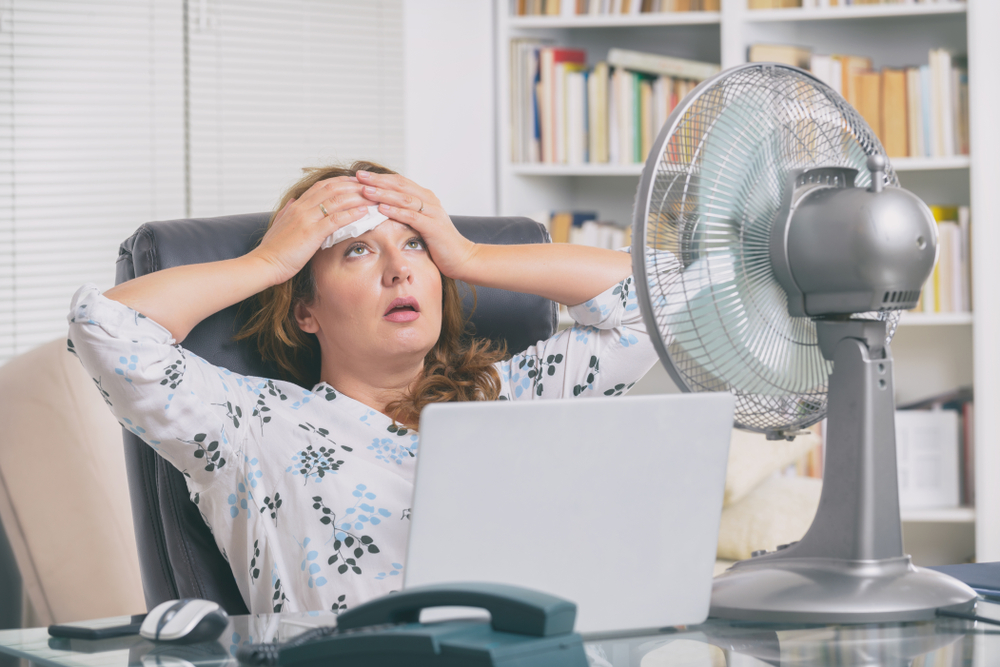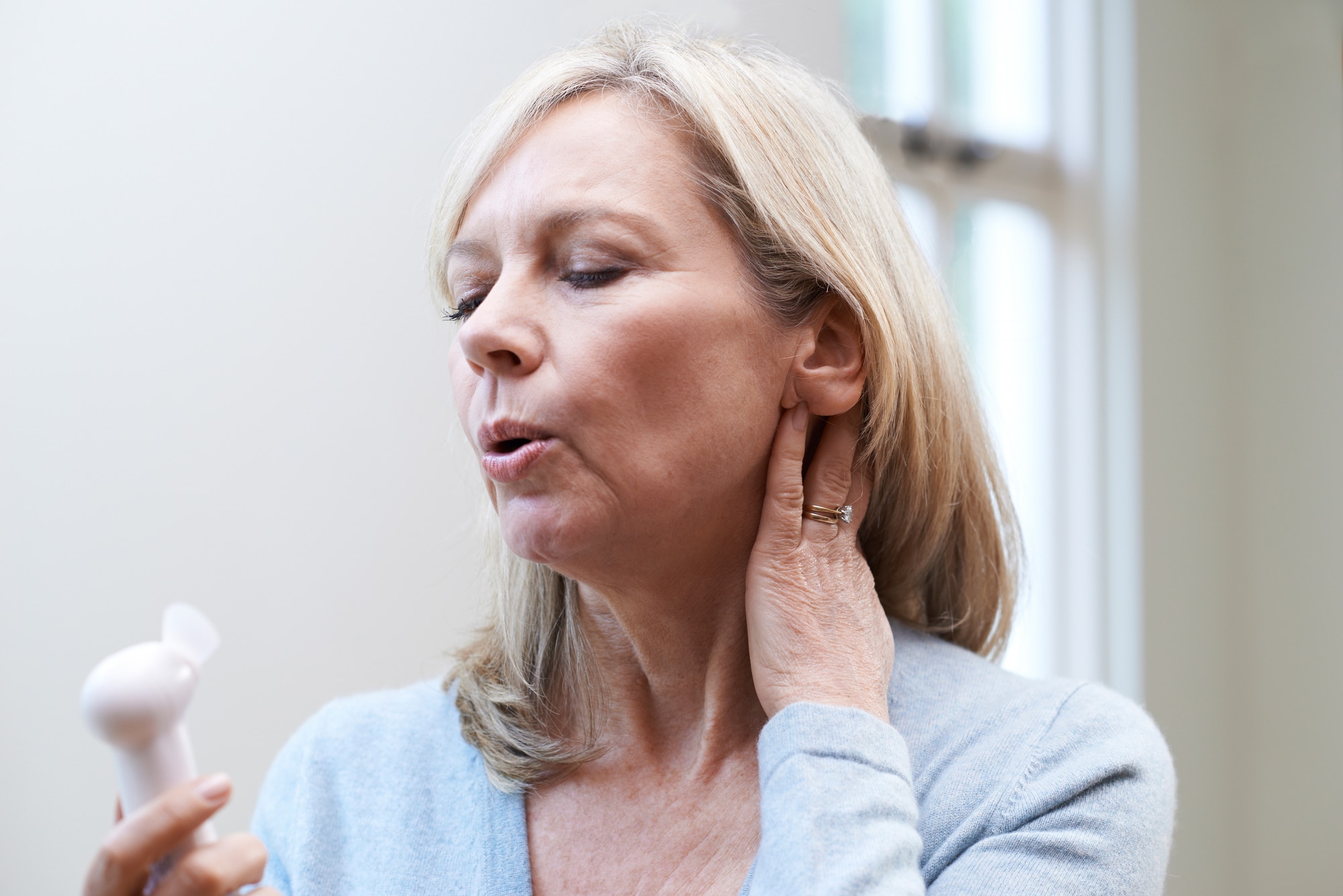8 Warning Signs You’re Already In Perimenopause

Perimenopause—the transition time leading up to menopause—is a gradual process. Your hormones begin to fluctuate to prepare your body for the end of menstruation, and it can begin anywhere from your early 30s to your late 40s.
As your estrogen levels rise and fall, symptoms of perimenopause will come and go—which explains why you might be dealing with unexpected symptoms one week and feel like your normal self the next.
So, is menopause approaching?
Let’s explore the 9 common perimenopause signs that your body may be signaling to you.
Note: If you are experiencing many of these symptoms, it’s best to contact your doctor, who can help you determine if perimenopause is the suspected cause.
1. Your Periods Are All Over the Place

Photo Credit: Shutterstock
Are your periods suddenly all over the place? Maybe they don’t last as long, there’s a change in your flow, or you go a month or two without having one. This could be a telltale sign that you’ve entered perimenopause.
2. Sudden Hot Flashes

Photo Credit: DepositPhotos
Hot flashes are a common symptom of perimenopause. It’s far from the worst side effect but can be unpleasant and disruptive.
A hot flash is a sudden sensation of heat that often causes sweating, heart palpitations, and anxiety. There lots of natural remedies for hot flashes you can try for help.
3. And Sudden Cold Flashes, Too

Photo Credit: Shutterstock
Cold flashes are another perimenopause sign. A cold flash is a sudden sensation of cold that can be accompanied by chills and goosebumps.
4. Frequent Night Sweats

Photo Credit: Shutterstock
Night sweats are one of the most common signs of perimenopause! A night sweat is when a person feels hot and sweaty during sleep.
Night sweats are typically more intense during perimenopause but can last throughout menopause as well.
5. Irritability and Mood Swings

Photo Credit: Shutterstock
I have a few tips of learning to embrace a positive menopause mindset.
6. Vaginal Dryness

Photo Credit: Shutterstock
Vaginal dryness is characterized by reduced hydration or fluid in the tissues of the vagina, which can lead to pain and irritation.
7. Trouble Sleeping

Photo Credit: Shutterstock
Between fluctuating hormones and night sweats, perimenopause can cause a disruption in how much sleep you’re getting.
Insomnia, trouble falling asleep, and the inability to get restful sleep can occur during perimenopause.
8. Trouble Concentrating

Photo Credit: Shutterstock
During perimenopause, memory and concentration problems can happen as estrogen levels drop, leading to insufficient blood flow to the brain.
